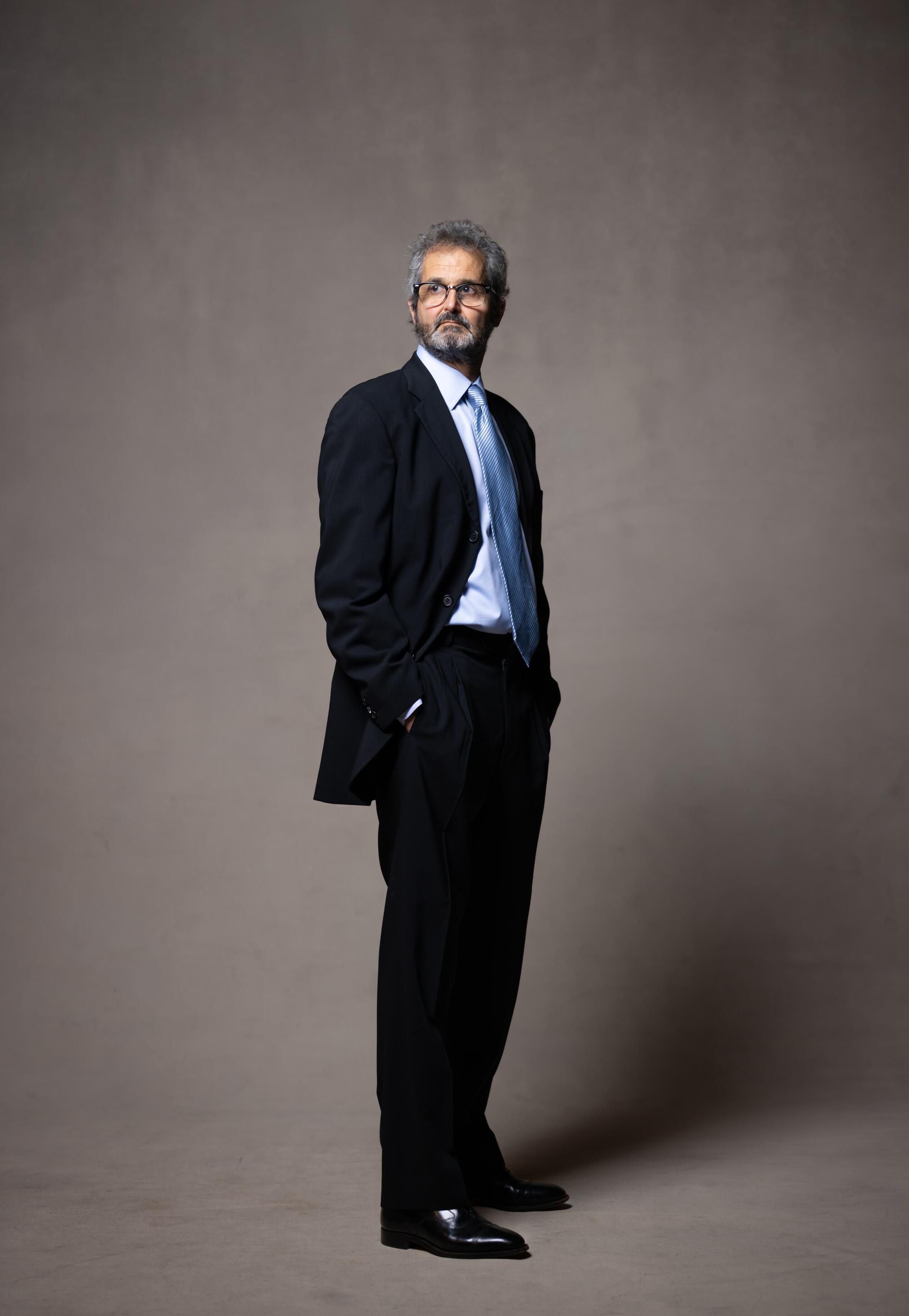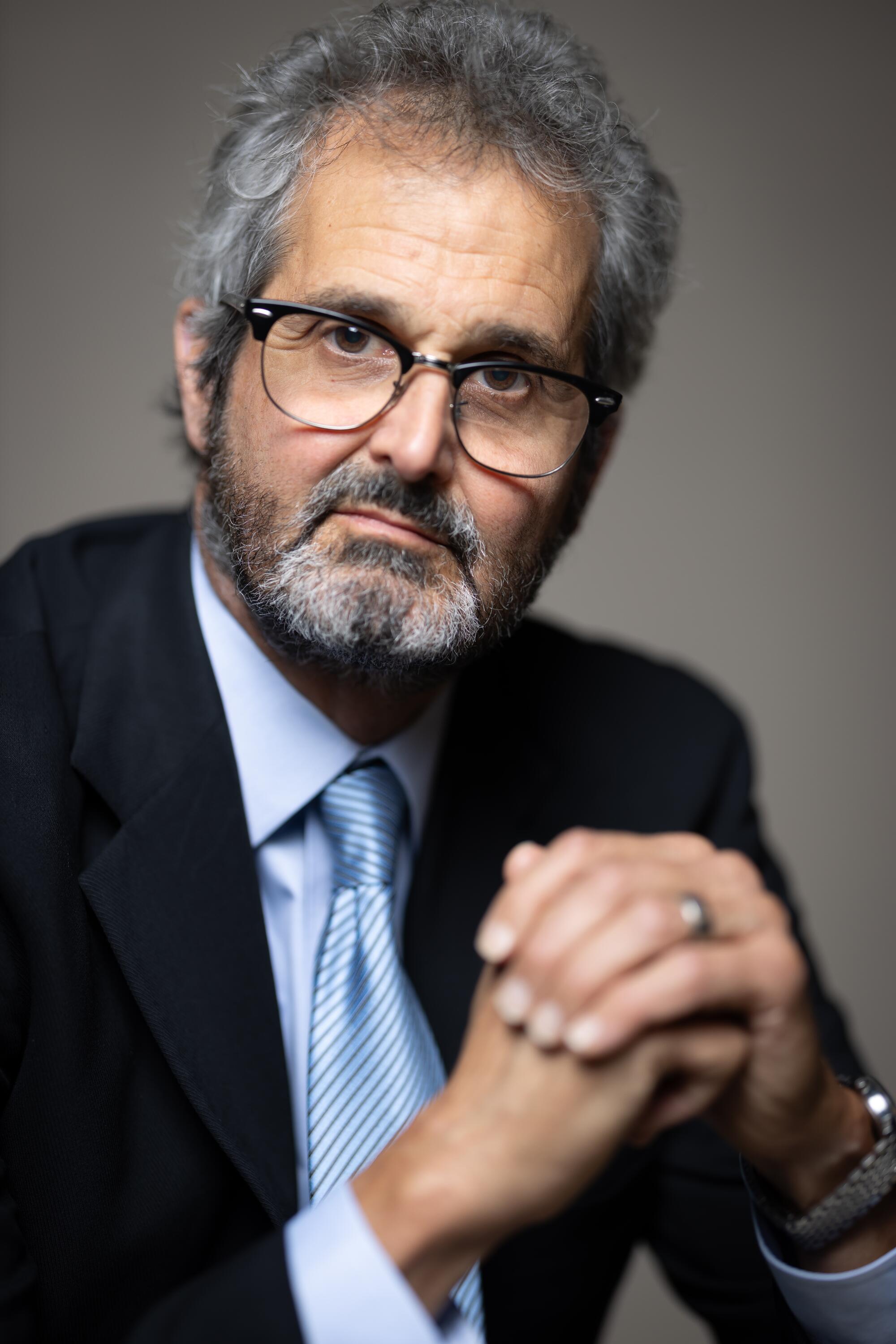
If you Google Peter Eliasberg, the results are misleading: You’ll see him at film awards. Galas. Movie premieres. Lanky, with perpetually tousled salt-and-pepper hair, he looks a little out of place on the red carpet alongside the blond woman in the photos — his wife, Catherine Dent. She’s the actor of the pair.
What you won’t find, because photos are banned in the federal courtrooms in downtown L.A., are images of Eliasberg in his admittedly less glamorous element doing what he does best: arguing in front of a judge and striking fear into the heart of the Los Angeles County Sheriff’s Department.
Discover the changemakers who are shaping every cultural corner of Los Angeles. L.A. Influential brings you the moguls, politicians, artists and others telling the story of a city constantly in flux.
Currently, three major lawsuits are challenging notoriously bad conditions and abuse inside L.A. County’s sprawling network of county jails, which are run by the Sheriff’s Department. As chief counsel at the American Civil Liberties Union of Southern California, Eliasberg is representing thousands of inmates in two of them. In 2022, Eliasberg and colleagues reignited one of the cases, which dates back to the 1970s, with the bombshell discovery that jail staff had been chaining mentally ill people to benches for days at a time. The revelation nearly led to a contempt hearing against the county the following year — something officials only narrowly avoided by acquiescing to the ACLU’s demands and making major changes at the Inmate Reception Center downtown.

The other case, which Eliasberg spearheaded 12 years ago, is centered on the beatings and assorted violence meted out by deputies. Though change has been halting, over the last decade jailers have at least stopped beating inmates with flashlights and now punch them in the face far less often than they used to. That might seem like a low bar for progress, but it’s not the kind of culture shift that sheriff’s departments tend to make on their own.
Neither of these massive pieces of litigation is a one-man show: In court, Eliasberg is always flanked by a dogged team of ACLU lawyers. But at 63, he’s been on the case longer than anyone else except for the judge.


